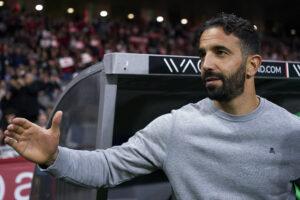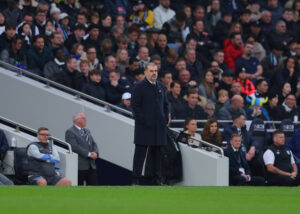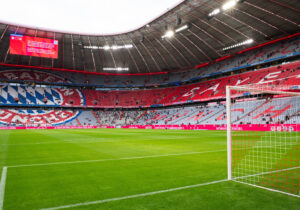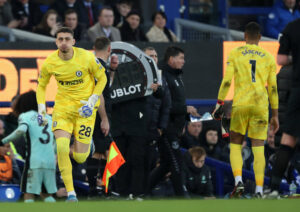Rarely in football (or, indeed, in life) is an idea almost universally condemned and then soon afterwards almost universally lauded, yet that is precisely what has happened with the Nations League. After months of confusion about what it is and what it is supposed to do, the final round of the first ever group stage of Nations League games was the moment that most football fans, players and managers finally ‘got it. And once they did, by and large, they loved it.
The Nations League was introduced by UEFA specifically to end, or at least dramatically reduce the number of, meaningless international friendlies, those apparently pointless games between countries that have become so commonplace over the years and that have often resembled training-ground matches, such has been their lack of intensity.
Nations League Shows That A Closed-Shop Super League Would Never Work
Different Feeling to the World Cup
This year’s World Cup in Russia, which was one of the greatest World Cup tournaments ever and certainly the finest since Mexico in 1986, proved conclusively that there is still an insatiable desire among most football fans for international competition. One only had to look at the enormous TV audiences and the crowds gathered around huge public screens in countries that did well, such as England, France and Russia itself, to see that.
However, while the hunger for international football in major tournaments remains, what most football fans cannot abide is what so often passes for international football in the periods between major tournaments. For the major footballing nations, in particular, qualifying has generally become so routine, especially when there is usually the safety net of a play-off place if they do not qualify directly, that many of their fans have switched off (both metaphorically and actually) from international football until the next major tournament comes around.
The Nations League has ended all that. First and foremost, it has grouped nations according to ability, which is usually determined by their past achievements. Hence, at Group A level, England played Spain and Croatia, and France faced Germany and Holland, whereas smaller, less successful teams played at a lower level against opposition of comparable ability.
That alone would have been enough to restore some much-needed energy and intensity to international football but, in addition, UEFA introduced the whole concept of promotion and relegation, just as in club football. The country winning their group is promoted (ultimately, for the Group A sides, to the last four of the tournament) and the country finishing bottom is relegated (whereby they slip down a level to play lesser opponents than those they have just faced).
Effectively, UEFA has introduced the all-important element of jeopardy to international football. Do well and you will be rewarded; do poorly and you will be punished. That is a formula familiar to football fans the world over from club football and the only real surprise is that it has taken UEFA, or any other confederation, so long to apply it to international football. But better late than never.
The Winner (or Drawer) Takes All
Two games in the last week perfectly illustrated the new and thrilling nature of Nations League football. England’s game against Croatia wasn’t just ‘winner takes all’ (or at least ‘winner reaches the semi-finals of the tournament’) but also ‘loser loses everything’. Both sides knew that if they won they would go through to the final stages of the tournament, but they also knew that if they lost they would be relegated to the Group B pool of nations. The result was a genuinely thrilling game that was a world away from the utter banality and listlessness of so many previous international friendlies. And it was played out in an atmosphere at Wembley that was arguably the best for an international game at the stadium since England’s last home triumph over a top international side, the 4-1 thrashing of Holland at Euro 96.
That could have just been a one-off, but in fact, the model was replicated all over Europe. Two days later, Germany faced Holland in their group. What was fascinating was that Germany, because of their previous poor results (which are surely the result of their World Cup hangover), had already been relegated, but even though they could not progress from the group themselves they were absolutely determined to ensure that their old rivals Holland would not progress either. So, just as at Wembley, a genuine thriller of a match ensued, with Germany going two goals up early on and Holland fighting back at the death to grab the draw that secured their place in the last four of the Nations League.
There is an absolutely vital lesson to be learned from the Nations League and it is particularly relevant to all the discussions about a so-called European Super League that have taken place over the last month or so. It is that football without jeopardy – without some element of danger – is pointless, indeed almost unwatchable.
The Legends Agree
Two footballing figures as disparate as Arsenal legend Ian Wright and UEFA President Aleksander Ceferin have both said as much this week. Wright opined in The Sun that “no promotion or relegation means no jeopardy”. And Ceferin argued, “‘Know your place’ is not fair to say. You have to compete, you have to have results to qualify for the top competition. If you don’t have results it would be a strange competition. You decide it by sport results, it’s the only way.”
Of course, what is being proposed for a so-called European Super League is precisely the kind of closed shop arrangement, without promotion or relegation, that is anathema to most football fans around the world, especially in Europe, where most of the sport’s great clubs and players are concentrated. The likes of Real Madrid, Barcelona, Manchester United and Juventus might want to play against each other more often, which in itself is not unreasonable as it would pit giant against giant. However, what is unreasonable is the prospect of a US-style franchising system, whereby the teams in the competition are protected from relegation (indeed, the very concept of relegation would cease to exist) and no other clubs would ever have the chance of achieving promotion.
The Nations League has done many good things already, but perhaps the best thing of all is that it has reminded everyone in football that jeopardy and its corollary – success, or promotion – are absolutely integral to football and must remain so in the future. If there is to be any kind of European Super League in the future, then however hard it will be to achieve, there must be a system of promotion and relegation, whereby failing teams would return to their national league or conference and successful teams can gain promotion to compete at the highest level. Without that, a closed-shop Super League would almost certainly be doomed to failure – if not immediately, then almost certainly in the long run.
Main Photo






